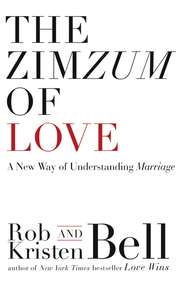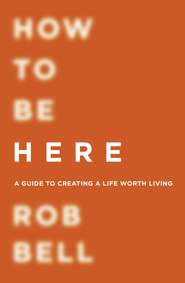По всем вопросам обращайтесь на: info@litportal.ru
(©) 2003-2024.
✖
Jesus Wants to Save Christians: A Manifesto for the Church in Exile
Автор
Год написания книги
2018
Настройки чтения
Размер шрифта
Высота строк
Поля
Following the Ten Commandments are all sorts of laws and commands about how to live in this new way.31 (#litres_trial_promo) The Israelites are told not to charge interest. “If you take your neighbor’s cloak as a pledge, return it by sunset, because that cloak is the only covering your neighbor has. What else can your neighbor sleep in? When he cries out to me, I will hear, for I am compassionate.”32 (#litres_trial_promo)
Do you hear the echoes of Egypt in the command? If they begin to oppress on an individual basis, God says that when the oppressed cry out, “I will hear.” The warning is sharp here: don’t become another Pharaoh, because God acts against people like Pharaoh.
They’re commanded, “Do not mistreat or oppress a foreigner, for you were foreigners in Egypt. Do not take advantage of a widow or an orphan. . . . Do not deny justice to your poor people.”33 (#litres_trial_promo)
And God continually warns, “If you do [any of this] and they cry out to me, I will certainly hear their cry.”34 (#litres_trial_promo)
It’s as if God is saying, “The thing that has happened to you—go make it happen for others. The freedom from oppression that you are now experiencing—help others experience that same freedom. The grace that has been extended to you when you were at your lowest—extend it to others. In the same way that I heard your cry, go and hear the cry of others and act on their behalf.”
God measures their faith by how they treat the widows, orphans, strangers—the weak—among them. God’s desire is that they would bring exodus to the weak, in the same way that God brought them exodus in their weakness.
God’s words to the people through Moses begin with “if you obey me fully.”35 (#litres_trial_promo)
It’s an invitation, an opportunity,
but it’s a giant if, isn’t it?
“If you obey me fully.”
Which raises the question, Did they?
Were they true to the covenant?
How did they respond to the invitation?
We started with Egypt, we then went to Sinai, but to answer the “if” question, we now need to go to Jerusalem.
Jerusalem
Generations later, the descendants of these wandering slaves have settled into the land they were promised. Their great king David has secured their borders, the land and people are experiencing peace, and David’s son Solomon comes to power. Solomon is brilliant and wise and wealthy, and Jerusalem, the capital of the kingdom, begins to gain a global reputation. A queen from the land of Sheba comes to visit Solomon.36 (#litres_trial_promo) She’s from far away, from a different land, from a different kind of people, with a different religion. And she wants to know more about these people and their king and their God in Jerusalem.
Wasn’t this what Sinai was all about?
God was looking for a body, a nation to show the world just who God is and what God is like. And now it’s happening: foreigners from the corners of the earth are coming to ask questions and learn about just who this God is.
Sheba tests Solomon with hard questions,
she eats meals with him,
she watches him worship his God at the temple,
she gets a tour of his palace and all that he has built and acquired with his wealth,
and after surveying his kingdom,
she says, “Because of the LORD’s eternal love for Israel, he has made you king to maintain justice and righteousness.”37 (#litres_trial_promo)
Notice that she doesn’t say he is maintaining justice and righteousness—only that there can be only one reason why he has received so much blessing from God.
And what does she mean by “justice and righteousness”?
Freedom, liberation from violence, protection from anything dehumanizing. She understands that God has given all of this wealth and power and influence so that Solomon would use it on behalf of those who are poor, weak, and suffering from injustice.
What impresses her most about this God of Solomon’s is that this God is the God of the oppressed. This “pagan” queen from a foreign land understands what God is up to with these Jewish people living in Jerusalem.38 (#litres_trial_promo)
Sheba gets it.
So what did Solomon do with his wealth and power and influence? What kind of kingdom did he build? Did he maintain justice and righteousness with his vast resources?
Because it can go one of two ways in Jerusalem, can’t it?
Solomon, like us, can use his power and wealth to do something about the cry of the oppressed, or he can turn a deaf ear.
The Bible tells the story: “Here is the account of the forced labor King Solomon conscripted to build the LORD’s temple, his own palace, the terraces, the wall of Jerusalem.”39 (#litres_trial_promo)
Another word for forced labor is, of course, slavery.
Solomon had slaves. Slaves who labored to build his temple, palace, and other buildings.
Wait.
The LORD’s temple?
This is the same LORD who sets slaves free, correct?
The defining event of Solomon’s ancestors was the exodus, right?
And now Solomon is building a temple for the God who sets slaves free . . . using slaves?
This is a major moment in the Bible.
In just a few generations, the oppressed have become the oppressors.
The ancestors of people who once cried out because of their bondage are now causing others to cry out.
The descendants of people who once longed for freedom from Egypt are now building another Egypt.
Solomon has created an empire of indifference. He has forgotten the story of his ancestors. He hasn’t remembered how Moses demanded that the people be set free, how they escaped from Pharaoh, how they were brought out on “eagles’ wings.”40 (#litres_trial_promo)
In a few generations these wandering former slaves who were newly rescued from an oppressive empire have become empire-builders themselves.
Solomon isn’t maintaining justice; he’s now perpetuating the very injustice his people once needed redemption from and, in the process, building a kingdom of comfort. He dines in his palace and strolls on terraces constructed by human suffering.
But it isn’t just his comfort and indifference that stand out; it’s what exactly he builds. In the section where we’re told he was using slaves to build God’s temple and his palace and the terraces, it also says that Solomon used these slaves to build “Hazor, Megiddo and Gezer.”41 (#litres_trial_promo)
This is one of the many places in the Bible where it is easy to read through the lists of Hebrew names and miss what’s going on right below the surface. So what are Hazor, Megiddo, and Gezer?
They’re military bases.42 (#litres_trial_promo)











